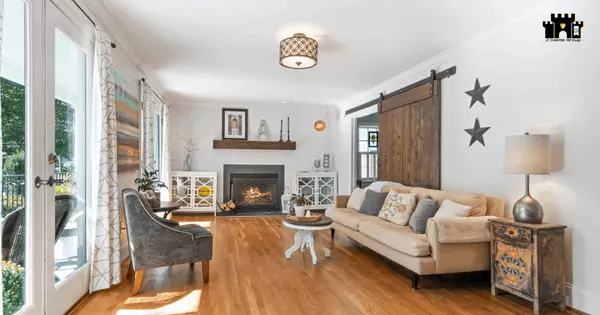Why You Need a Real Estate Expert in Today’s Market

The process of buying a home can feel a bit intimidating under normal circumstances, and today’s market is far from typical. With a limited supply of homes for sale, bidding wars, and rising home prices, the homebuying process is more competitive than ever. Navigating this complex landscape on your own can be daunting, which is why having a skilled real estate expert by your side is essential. Here’s how a professional real estate agent can make a difference: 1. Experience and Knowledge of the Market Real estate professionals have a deep understanding of current market conditions and how they impact buyers. They know the nuances of a fast-paced market and can anticipate potential challenges, allowing them to help you move quickly when needed. This expertise helps you avoid potential pitfalls, giving you a smoother home buying experience. 2. Education and Confidence Building Knowledge is key when buying a home, especially in a shifting market. A real estate expert will keep you informed about changing market conditions and help you understand how they affect your purchase. By explaining complex processes and terms in simple language, they empower you to make confident and informed decisions every step of the way. 3. Skilled Negotiation Buying a home often involves making offers, counteroffers, and negotiating terms that protect your interests. A real estate professional will represent your best interests, whether it’s helping with the purchase agreement, advising on the offer price, or negotiating seller concessions if issues arise during the inspection. Having someone skilled in negotiations by your side helps you secure a fair deal. 4. Expertise in Contracts and Disclosures The homebuying process comes with complex contracts and legal documents that need to be handled with care. A professional real estate agent guides you through each disclosure and contract, ensuring that everything is completed accurately and legally. Their guidance can protect you from common legal missteps in today’s highly regulated environment. 5. Strategic Pricing Advice Determining how much to offer on a property can be challenging, especially in a competitive market. Your agent will help you understand what similar homes are selling for, allowing you to make a competitive offer that aligns with current market values. This expertise can make all the difference in securing your dream home. The key to finding the right real estate expert is trust. You need someone who can provide sound advice based on the current information, someone who will advocate for your interests throughout the process. While no one can guarantee outcomes in an unpredictable market, a true professional can offer advice and insights that keep you prepared for each step. In today’s market, having a trusted real estate expert on your side is critical. If you’re planning to buy a home this year, connect with a real estate advisor who can guide you confidently through the journey, helping you make the best possible decisions along the way.
Read More-

House hunting can be one of the most exciting yet stressful experiences in your life. Whether you're a first-time buyer or looking to upgrade, the journey can quickly become overwhelming if you're not sure what you're looking for. Having a clear plan of action can not only save time but also ensure you find a home that fits your needs, lifestyle, and budget. Here's a comprehensive guide to help you identify what matters most when searching for your dream home. 1. Get Pre-Approved and Understand Your BudgetBefore diving into the house hunt, you need to establish a clear financial picture. This is where getting pre-approved for a mortgage comes into play. Not only will this give you a better idea of your budget, but it will also help you stand out in a competitive market. Ask yourself: What’s your price range? How much can you comfortably afford for a down payment? Are you prepared for ongoing expenses like property taxes and maintenance costs?Additionally, make sure to factor in the cost of any renovations. Are you willing to take on a fixer-upper, or do you prefer a move-in ready home? Being realistic about your financial situation will help guide the rest of your search. 2. Clarify Your Must-Haves vs. Nice-to-HavesIt’s easy to say you want a “big” house or an “older” home, but to narrow down your options, you need to be more specific. Start by creating two lists: Must-Haves and Nice-to-Haves. Think about your essential needs first: How many bedrooms and bathrooms do you need? What size yard or outdoor space are you looking for? Do you need a garage, or is street parking sufficient? Once you’ve identified the must-haves, make a second list of features you’d like but could live without, such as a swimming pool, a home theater, or a large walk-in closet. These details can be adjusted if necessary as your search progresses. 3. Consider Your Current and Future LifestyleYour dream home should suit your current lifestyle, but it should also accommodate your future plans. Consider how your life might change in the next five to ten years. Will your family grow? Do you plan on working from home or need space for a nursery? Think about: Do you need a dedicated office space or extra rooms for children? Are you considering pets that require a fenced yard or specific accommodations? Will you need to adjust for any mobility issues in the future, such as wheelchair access or fewer stairs? A home that supports both your present and future needs will provide long-term satisfaction and value. 4. Choose Your Preferred Home Style and TypeOnce you have a clearer picture of your needs, it’s time to consider the type and style of home that fits best. This will help you focus your search. Ask yourself: Do you prefer a single-family home, townhouse, or condo? Would you be open to a historic home, or do you prefer modern architecture? What are your preferences regarding the number of floors, layout, and space? What kind of flooring and finishes do you like? The goal here is to choose a home style that resonates with your personal tastes and lifestyle. 5. Location, Location, LocationWhile the features of a home can often be changed or renovated, the location is permanent. The neighborhood you choose will influence your daily life, so be sure to take into account: Are you drawn to an urban, suburban, or rural setting? How close do you need to be to work, schools, or public transportation? Do you want access to local amenities such as parks, shops, or entertainment? What’s the crime rate and general safety of the area? Location can also affect your property’s future value, so it's important to think about how the area might evolve overtime. 6. Get to Know the NeighborhoodEven if you've found a home you like in a location you love, it’s essential to investigate the neighborhood. A house might look perfect, but the surroundings will play a crucial role in your long-term satisfaction. Explore the area and ask yourself: Are you happy with the vibe of the neighborhood? Is it too quiet, or do you prefer more activity? How far is the commute to work, school, or other essential places? Are grocery stores, healthcare facilities, or other services within a convenient distance? You should feel comfortable and at ease in your neighborhood, so take the time to visit at different times of the day and week to get a sense of the community. 7. Tour the Property: Evaluate the Key FeaturesOnce you’ve found a potential home, it’s time to take a tour. Bring your list of must-haves and nice-to-haves, and compare the property to your checklist. Pay attention to details such as: The size and layout of the rooms The quality of fixtures and finishes Natural light and window placement The condition of the exterior and curb appeal Parking availability and the overall flow of the home Don't be swayed by cosmetic changes, as paint and staging can be altered. Instead, focus on the structural aspects that matter most. 8. Be Prepared to Make CompromisesIt’s rare to find a home that checks off every box on your list, especially within a given budget. Be ready to make compromises and prioritize the features that matter most to you. You may have to adjust your expectations in terms of size, location, or style, but with patience and flexibility, you can find a home that ticks most of your boxes. 9. Find the Right Real Estate AgentAfter defining your priorities, the next step is finding a trusted real estate agent who understands your needs. A skilled agent will help you navigate the market, identify properties that match your criteria, and negotiate the best price. 10. Trust Your InstinctsFinally, trust your gut. If a home feels right, it’s worth exploring further. However, if something doesn’t feel quite right, don’t be afraid to keep searching. Your dream home is out there—you just need to know what to look for.
Read More Investment Properties: Is Real Estate Still a Good Investment?
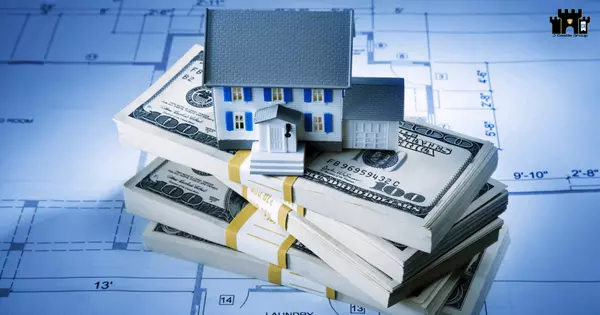
In the ever-evolving world of finance and investment, real estate has long been considered a staple of stable wealth-building. From rental properties to commercial spaces, real estate investments have provided long-term returns, cash flow, and tax benefits. However, with rising interest rates, fluctuating home prices, and shifting economic conditions, many potential investors are asking: Are real estate investment properties still a good investment in 2024? Let’s break it down. Real Estate's Historical Stability Historically, real estate has been one of the most resilient asset classes. While stocks and cryptocurrencies can see volatile swings, real estate generally appreciates steadily over time. Real property’s tangibility and practical value often insulate it from the kinds of speculative bubbles that can plague other investments. Even during economic downturns, real estate tends to recover value, especially in high-demand areas. The global financial crisis of 2008, though devastating, was an anomaly caused by specific failures in the lending system, and most markets have since recovered and grown significantly. Rising Demand for Housing A significant reason real estate remains a sound investment is the enduring and, in many places, growing demand for housing. As populations increase, particularly in urban centers, the demand for homes, rental properties, and even vacation spots continues to rise. In the U.S., for instance, inventory shortages in major cities have pushed prices upward and created opportunities for property investors, especially those looking to buy and hold rental units. Short-term rental platforms like Airbnb have also created a new category of investors, allowing property owners to capitalize on travel trends. The Rental Market: A Strong Investment Path Rental properties remain one of the most attractive avenues for real estate investment. Even with rising mortgage rates, the demand for rental properties remains robust, largely driven by millennials and Gen Zers who are delaying home purchases due to affordability challenges. Investors can enjoy steady monthly income from rental properties, while the tenants effectively pay down the mortgage over time. In many cases, rents are rising faster than mortgage payments, especially in markets with housing shortages. If managed well, rental properties offer the potential for both cash flow and long-term appreciation. Additionally, the surge in remote work has shifted the dynamics of housing demand. Many people are moving to smaller, more affordable towns, driving up demand in previously overlooked markets. Rising Interest Rates: A Challenge but Not a Dealbreaker One of the biggest concerns for investors right now is the rise in interest rates. The Federal Reserve has increased rates to combat inflation, leading to higher mortgage rates, which can squeeze profit margins for investors. While this can be a hurdle for new investors or those relying heavily on financing, it doesn’t necessarily mean real estate is no longer a good investment. Investors with strong credit, larger down payments, or access to cash financing can still find great deals. Furthermore, the rental market's strength often allows landlords to offset higher mortgage payments by charging higher rents. Investors should also consider adjustable-rate mortgages (ARMs), which often offer lower initial rates that can be advantageous in the short term, especially if you plan to refinance when rates stabilize. Diversification Through Real Estate Investment Trusts (REITs) For those who aren’t ready or able to buy physical properties, Real Estate Investment Trusts (REITs) provide an attractive alternative. REITs allow investors to buy shares in a portfolio of properties, from commercial buildings to residential apartments, often with less capital upfront and more liquidity. REITs have historically performed well, offering dividends and capital appreciation. They’re also a good hedge against inflation, as property values and rents typically rise with inflation, providing income protection. Tax Benefits of Real Estate Investment One of the most significant advantages of investing in real estate is the array of tax benefits available to property owners. Real estate investors can often deduct expenses such as mortgage interest, property taxes, insurance, and maintenance costs. Depreciation can also be written off, even if the property is appreciating in value, further enhancing cash flow. 1031 exchanges, which allow investors to defer capital gains taxes by reinvesting profits into new properties, remain a powerful tool for wealth building. This ability to reinvest untaxed gains is a key reason why many real estate investors continue to grow their portfolios year after year. Location Still Matters—More Than Ever The old adage “location, location, location” still holds true in 2024. Certain markets are booming, while others may be stagnant or declining. For example, cities with growing tech industries, high employment rates, and attractive lifestyles—like Austin, Texas; Raleigh, North Carolina; and Salt Lake City, Utah—are drawing in new residents and investors alike. However, the rise of remote work has made suburban and rural markets more attractive, too. Investors who can identify emerging markets before they become "hot" stand to benefit the most from early investments. The Importance of Due Diligence and Long-Term Strategy As with any investment, success in real estate depends on doing your homework. Investors should carefully research market conditions, neighborhood trends, and the financial aspects of each potential property. Understanding local regulations, property taxes, and expected maintenance costs is crucial to ensure profitability. Additionally, real estate is not a get-rich-quick scheme. While it can provide both cash flow and appreciation, it typically requires a long-term strategy to see the best returns. Patience, market knowledge, and a focus on long-term growth are essential. Despite the challenges posed by rising interest rates and economic uncertainty, real estate investment properties remain a strong investment choice in 2024, particularly for those who take a long-term view. The consistent demand for housing, combined with potential cash flow from rental income, market appreciation, and tax advantages, makes it a resilient option in a diversified investment portfolio. Investors who carefully select properties, focus on growth markets, and understand financing options will likely continue to find real estate a rewarding investment for years to come.
Read More-
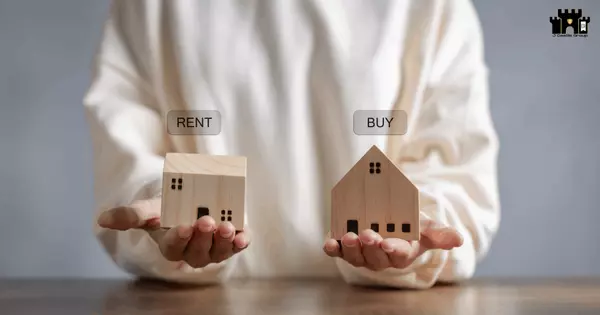
The decision to rent or buy a home is a significant one, with financial, lifestyle, and personal implications. For many people, the choice isn’t clear-cut—there are advantages and disadvantages to both options. Understanding your priorities, financial situation, and future plans can help you make an informed decision that fits your unique circumstances. In this blog, we’ll explore the pros and cons of renting versus buying and provide insights to help you determine which path is right for you. 1. The Pros of Renting Renting offers flexibility and freedom, which can be appealing for those who may not want to commit to a long-term investment. Here are some key benefits of renting: Flexibility: Renting allows you to move more easily, whether for a new job, a change in lifestyle, or a desire to explore different neighborhoods or cities. If your plans aren’t set in stone, renting can provide the flexibility you need without the long-term commitment of buying. Lower Upfront Costs: Renting typically requires less upfront financial investment than buying a home. While you’ll need to cover the security deposit and possibly the first month’s rent, you won’t need to worry about a down payment or closing costs, which can amount to thousands of dollars when purchasing a home. No Maintenance Responsibilities: One of the perks of renting is that you’re not responsible for major repairs or maintenance. If something breaks or needs attention, the landlord or property manager handles the issue, saving you time and money. Predictable Monthly Costs: With renting, your monthly housing costs are typically limited to rent and utilities. You won’t need to worry about unexpected repair bills, property taxes, or homeowner’s insurance, making it easier to budget. Access to Amenities: Many rental properties offer amenities such as gyms, pools, and community spaces, which may be out of reach for some homeowners. 2. The Cons of Renting While renting has its perks, it also has limitations that may make homeownership more appealing in certain situations: No Equity Building: When you rent, you’re not building equity in the property. Essentially, your monthly rent payments go toward paying your landlord’s mortgage, and you don’t gain any ownership in return. Lack of Control: Renting means you’re subject to your landlord’s rules and decisions. You may not be able to make changes to the property, and you could face rent increases or even the possibility of being asked to move if the property is sold. Limited Stability: Rental leases are typically short-term, usually one year. If you’re looking for long-term housing stability, buying may be a better option. 3. The Pros of Buying Homeownership offers several advantages, from building equity to creating a sense of permanence. Here are some key benefits of buying: Building Equity: One of the most significant advantages of owning a home is the ability to build equity. As you pay down your mortgage, your equity in the home increases, providing you with a financial asset that can grow over time. Stability: When you buy a home, you have the freedom to stay in one place for as long as you choose. You won’t have to worry about rent increases or the possibility of being forced to move. Customization: As a homeowner, you have full control over your property. You can renovate, decorate, and personalize your home to fit your style and preferences without seeking permission from a landlord. Tax Benefits: Homeowners may be eligible for tax deductions on mortgage interest and property taxes, which can help reduce the overall cost of homeownership. Appreciation Potential: In many cases, homes appreciate in value over time, which can lead to a profitable return on investment if you decide to sell in the future. 4. The Cons of Buying While buying a home has its benefits, it also comes with certain drawbacks: High Upfront Costs: Buying a home requires a significant financial commitment upfront, including a down payment, closing costs, and potential repairs or renovations. These expenses can add up, making it harder for some people to afford homeownership. Maintenance Responsibilities: Unlike renting, homeownership comes with the responsibility of maintaining and repairing the property. From fixing a leaky roof to replacing appliances, these costs can be unexpected and add to the overall cost of homeownership. Less Flexibility: Buying a home can tie you to a location for the long term. If your job or personal circumstances change, selling a home can take time, and you may not be able to move as quickly as a renter. Market Risk: Real estate markets can fluctuate, and there’s no guarantee that your home will appreciate in value. In some cases, homeowners may face a declining market, leading to a loss in property value. 5. How to Decide: Key Considerations When deciding whether to rent or buy, consider the following factors: Financial Situation: Take a close look at your current financial health. Do you have enough savings for a down payment and closing costs? Are you prepared for the ongoing costs of homeownership, including maintenance, property taxes, and insurance? If you’re not financially ready, renting may be the better option for now. Future Plans: Consider your long-term goals. If you plan to stay in one place for several years, buying a home can provide stability and a chance to build equity. However, if your future is uncertain, renting may offer the flexibility you need. Local Market Conditions: Real estate markets vary by location. In some areas, buying a home can be more affordable than renting, while in others, renting may be the better option. Research your local market to understand the current trends and pricing in your area. Lifestyle Preferences: Consider your lifestyle preferences. Do you value the ability to customize your living space and enjoy the benefits of homeownership? Or do you prefer the freedom to move easily and avoid the responsibilities of home maintenance? Deciding whether to rent or buy is a personal choice that depends on your financial situation, lifestyle, and future plans. Both options have their advantages and drawbacks, and the best decision for you will depend on your unique circumstances. By carefully considering the pros and cons of each option, you can make an informed choice that aligns with your goals.
Read More What Every First-Time Homebuyer Should Know to Avoid Mistakes
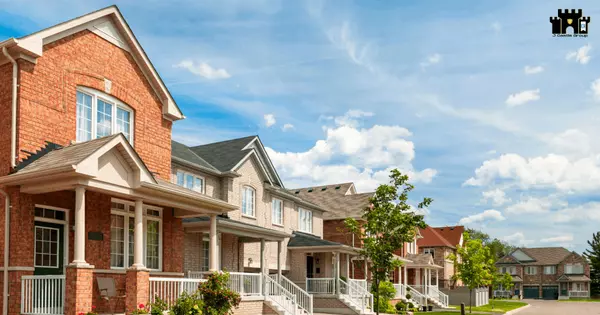
Buying your first home is an exciting milestone, but it can also be a complex and overwhelming process. First-time homebuyers often make mistakes that can lead to financial stress or buyer’s remorse. By understanding these common pitfalls, you can navigate your home purchase with confidence. Here are essential mistakes to avoid as a first-time homebuyer.1. Not Getting Pre-Approved for a MortgageOne of the biggest mistakes first-time buyers make is house hunting without getting pre-approved for a mortgage. Pre-approval gives you a clear understanding of how much you can afford and shows sellers that you’re serious. Skipping this step could lead to disappointment if you find your dream home but can’t secure financing. It’s advisable to meet with a lender early in the process to explore your options and get pre-approved.2. Underestimating the Total CostsMany first-time buyers focus solely on the sale price of the home without considering the additional costs involved. Closing costs, property taxes, insurance, and maintenance expenses can add up quickly. Make sure to budget for these extra costs to avoid financial strain later on. A good rule of thumb is to set aside an additional 2-5% of the home price for closing costs and ongoing expenses.3. Skipping the Home InspectionA home inspection is a critical step in the buying process. Some first-time buyers are tempted to skip it to save money, but this can be a costly mistake. A home inspection can reveal hidden issues like structural damage, plumbing problems, or electrical issues. Addressing these problems before purchasing can save you from future headaches. Always make your offer contingent on a satisfactory inspection.4. Letting Emotions Drive DecisionsBuying a home is a major life decision, and it’s easy to get emotionally attached to a property. However, making decisions based solely on emotion can lead to overpaying or choosing a home that doesn’t meet your needs. Stay focused on your budget, needs, and priorities throughout the process. Consider creating a list of must-haves and nice-to-haves to help guide your decisions.5. Failing to Research the NeighborhoodThe neighborhood you choose is just as important as the house itself. Before making an offer, research the area’s schools, amenities, safety, and future development plans. Buying in a neighborhood that fits your lifestyle and long-term goals will contribute to your overall satisfaction with your new home. Visit the neighborhood at different times of the day to get a feel for the area.6. Overextending FinanciallyIt’s easy to fall in love with a house that’s outside your budget, but stretching yourself too thin financially can lead to trouble down the road. Avoid taking on a mortgage that leaves you with little room for other expenses. Stick to your pre-approved budget and consider future financial goals, like saving for retirement or emergencies.7. Ignoring Resale ValueWhile it’s important to find a home that suits your needs, it’s also wise to consider its resale value. Trends in the housing market can change, and what seems perfect now may not hold its value in the future. Look for homes in desirable neighborhoods with good schools and amenities, as these factors often contribute to resale potential.8. Not Using a Real Estate AgentNavigating the home buying process can be challenging, and many first-time buyers attempt to go it alone. A knowledgeable real estate agent can provide valuable insights, negotiate on your behalf, and guide you through the complexities of the transaction. Their expertise can help you avoid common pitfalls and ensure a smoother buying experience.By keeping these common mistakes in mind, first-time homebuyers can approach the process with greater knowledge and confidence. Remember that buying a home is not just a transaction; it's a significant investment in your future. Taking the time to educate yourself and avoid these pitfalls can lead to a more successful and satisfying home-buying experience.
Read MoreThe True Value of Homeownership

Buying and owning your home can make a big difference in your life by bringing you joy and a sense of belonging. And with National Homeownership Month just passed us, it’s the perfect time to think about all the benefits homeownership provides.Of course, there are financial reasons to buy a house, but it’s important to consider the non-financial benefits that make a home more than just where you live.Here are three ways owning your home can give you a sense of accomplishment, happiness, and pride:You May Feel Happier and More FulfilledOwning a home is associated with better mental health and well-being. Studies have shown the emotional and psychological benefits that homeownership has on a person’s health and self-esteem. According to Habitat for Humanity, Residential stability among homeowners is related to improved life satisfaction, along with better physical and mental health. So, according to the experts, owning a home can improve your psychological wellness by making you feel happier and more accomplished.You Can Engage in Your Neighborhood and Grow Your Sense of CommunityYour home connects you to your community. Homeowners tend to stay in their homes longer than renters, and that can help you feel more connected to your community because you have more time to build meaningful relationships. When people stay in the same area for a longer period of time, it can lead to them being more involved: Homeowners also tend to be more active in their local communities.After all, it makes sense that someone would want to help improve the area they’re going to be living in for a while.You Can Customize and Improve Your Living SpaceYour home is a place that’s all yours. When you own it, unless there are specific homeowner’s association requirements, you’re free to customize it however you see fit. Whether that’s small home improvements or full-on renovations, your house can be exactly what you want and need it to be. As your tastes and lifestyle change, so can your home. One major benefit of homeownership is the knowledge that you own your little corner of the world. You can customize your house, remodel, paint, and decorate without the need to get permission from a landlord.Renting can limit your ability to personalize your living space, and even if you do make changes, you may have to undo them before your lease ends. The ability homeownership gives you to customize and improve where you live creates a greater sense of ownership, pride, and connection with your home.Owning your home can change your life in a way that gives you greater satisfaction and happiness. Let’s connect today if you’re ready to explore homeownership and all it has to offer.
Read MoreWhat You Shouldn’t Sweat When Finding a Home
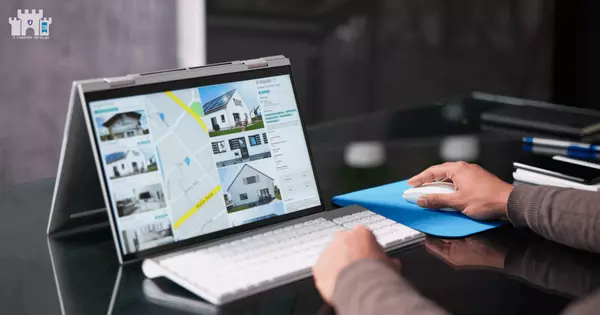
If you’re on the home-buying journey for the first time, you may have the image of the perfect home in mind. Every wall a color you love, the best flooring, and the perfect backyard. While there’s a chance you may find your dream house, it is more likely that you’ll find that house with a few exceptions. So where should you draw the line? Are there things you should ignore if the price and location are right? The answer is yes! There are some things you can ignore while home shopping if it means checking the rest of your boxes. Here are some of the things you can overlook if you are considering making an offer on a home that has the perfect location or layout.WEIRD CARPET/WALLPAPER While it may be tempting to wait for a home with new carpet or freshly painted white walls, overlooking old carpet or vibrant wallpaper can help you get your otherwise dream-home. Replacing the carpet or painting the walls doesn’t have to be an expense for you, and it is something you can negotiate with the seller to get the best deal on your home.ROOMS BEING ‘MISUSED’You may walk into a house and see workout equipment next to a fridge, or a bed in a living room. Don’t let a room being used for something seemingly odd keep you from loving a house. It may be hard to picture your furniture somewhere, but use your imagination and give the room, and house, a chance. An exercise room today can easily be your kitchen next week!SELLER PRESENCESome sellers choose to not remove personalized items before putting their house up for sale. It can be overwhelming to enter a home covered with photos of someone else’s family. While that may be the case, it is important to keep in mind that all of that personalization will be gone if you buy the home. Ignore what you can change, and just consider whether you can make the home your own.
Read MoreEverything You Need to Know for a Stress-Free Move

Moving can be one of the most stressful life events, but with a well-organized plan, it doesn't have to be. Use this ultimate moving checklist to ensure a smooth and stress-free transition to your new home. 8 Weeks Before Moving: Create a Moving Folder: Keep track of all your moving-related documents, receipts, and estimates. This folder will be your go-to resource for everything related to your move. Research Moving Companies: Get quotes from at least three moving companies and check reviews. Consider factors such as cost, services offered, and customer feedback. Declutter Your Home: Decide what to keep, donate, or sell. Have a yard sale or donate unwanted items to charity. Decluttering will reduce the number of items you need to move and make packing easier. Start Packing Non-Essentials: Begin with items you don’t use daily, such as seasonal clothing and decorations. Label each box with its contents and the room it belongs to. 6 Weeks Before Moving: Order Moving Supplies: Boxes, packing tape, bubble wrap, and markers. Having all necessary supplies on hand will streamline the packing process. Use Up Perishables: Start using up food and cleaning supplies you don’t want to move. Plan meals around what you have to minimize waste. Take Measurements: Ensure your furniture will fit in your new home. Measure doorways, hallways, and rooms in both your current and new homes. Notify Schools and Employers: Inform them of your move and arrange the transfer of records. This is especially important if you have children who will need to enroll in a new school. 4 Weeks Before Moving: Confirm Moving Details: Finalize your moving date and confirm details with your moving company. Ensure they have accurate information about your current and new addresses. Change Your Address: Notify the post office, banks, utilities, and any subscriptions of your new address. Update your address on all important accounts and documents. Pack Room by Room: Label each box with its contents and the room it belongs in. This will make unpacking easier and more organized. Arrange for Child and Pet Care: Make arrangements for moving day if needed. Having someone watch your children and pets can help reduce stress and distractions. 2 Weeks Before Moving: Service Your Car: If you’re moving long-distance, ensure your vehicle is in good condition. Check the oil, brakes, tires, and fluid levels. Confirm Travel Arrangements: Double-check flights, hotels, or rental cars. Make sure you have all necessary reservations and confirmations. Prepare an Essentials Box: Include items you’ll need right away, such as toiletries, clothes, and important documents. Keep this box with you during the move. Plan Meals: Use up remaining food and avoid buying new groceries. Consider easy-to-prepare meals or eating out during the final days before your move. 1 Week Before Moving: Pack a Moving Day Kit: Include snacks, water, phone chargers, and any medications. This kit should contain everything you need to stay comfortable and prepared on moving day. Disassemble Furniture: Take apart any large furniture and keep hardware in labeled bags. This will make loading and unloading easier. Clean Your Home: Do a final clean of your current home and prepare your new home. Cleaning both homes will make the transition more pleasant. Review the Moving Plan: Go over the moving plan with your movers and family. Ensure everyone knows their responsibilities and the timeline for moving day. Moving Day: Do a Final Walkthrough: Check every room, closet, and cabinet. Make sure nothing is left behind. Supervise the Move: Be present to answer any questions and provide directions. Keep an eye on how your belongings are being handled. Keep Important Items with You: Carry valuables, important documents, and essentials yourself. This ensures they stay safe and accessible. Say Goodbye: Take a moment to say goodbye to your old home. Reflect on your memories and look forward to new beginnings. Following this comprehensive checklist will help make your move organized and less stressful. Good luck with your new adventure!
Read More-

Technology has transformed almost every industry, and real estate is no exception. From virtual tours to AI-driven analytics, technology is revolutionizing how we buy, sell, and manage properties. Here’s a look at how various technological advancements are shaping the real estate markets and what it means for buyers, sellers, and agents.1. Virtual Tours and Augmented Reality:Virtual tours and augmented reality (AR) have become game-changers in real estate. Potential buyers can explore properties from the comfort of their homes using 3D virtual tours. AR allows buyers to visualize changes to a property, such as renovations or new furniture, enhancing their decision-making process.2. AI and Big Data Analytics:Artificial intelligence (AI) and big data analytics are helping real estate professionals make more informed decisions. AI algorithms analyze market trends, property values, and buyer behavior to provide insights that guide pricing strategies and investment decisions. Predictive analytics can forecast market fluctuations, helping investors and developers plan better.3. Blockchain and Smart Contracts:Blockchain technology is enhancing transparency and security in real estate transactions. Smart contracts, powered by blockchain, automate and secure agreements between buyers and sellers. This reduces the need for intermediaries, speeds up transactions, and minimizes the risk of fraud.4. Real Estate Apps and Online Platforms:Mobile apps and online platforms have made property searches and transactions more accessible. Websites like Zillow, Redfin, and Realtor.com provide comprehensive property listings, market analysis, and tools for buyers and sellers. Mobile apps enable users to schedule viewings, communicate with agents, and receive real-time updates.5. Drones and Aerial Photography:Drones are revolutionizing property marketing by providing high-quality aerial photography and video footage. This technology offers unique perspectives of properties, showcasing large estates, commercial spaces, and scenic views. Drones also assist in property inspections, especially in hard-to-reach areas.6. Smart Home Technology:Smart home technology is increasingly influencing real estate markets. Homes equipped with smart devices, such as thermostats, security systems, and voice-activated assistants, are more attractive to tech-savvy buyers. These features enhance the convenience, security, and energy efficiency of homes.7. Online Mortgage and Financing Solutions:Technology has simplified the mortgage and financing process. Online platforms allow buyers to apply for mortgages, compare rates, and receive approval in a fraction of the time it used to take. Digital lenders and fintech companies are making home financing more accessible and user-friendly.8. Enhanced Property Management Software:Property management software has evolved to streamline operations for landlords and property managers. Features like automated rent collection, maintenance scheduling, and tenant screening improve efficiency and tenant satisfaction. Cloud-based solutions provide real-time access to property data, enhancing decision-making and operational management.Technology is redefining the real estate landscape, making it more efficient, transparent, and accessible. From virtual tours to AI-driven analytics, these innovations are enhancing every aspect of the real estate market. As technology continues to advance, it will undoubtedly shape the future of real estate, offering new opportunities and challenges for all stakeholders.
Read More
Categories
Recent Posts
